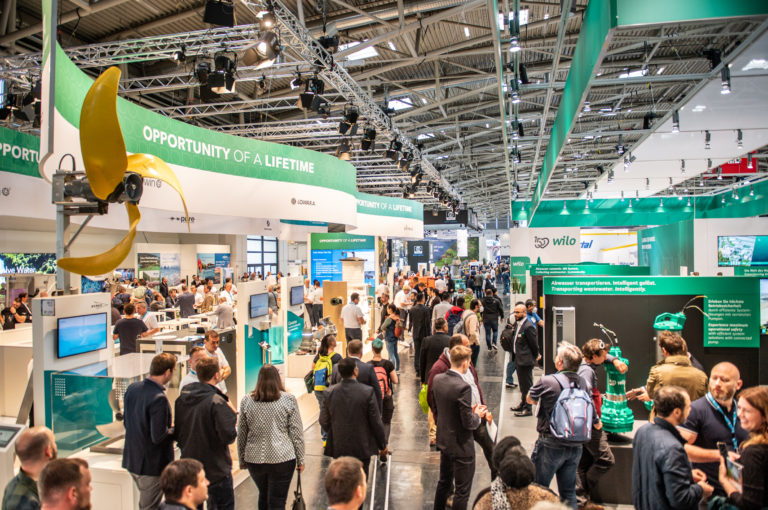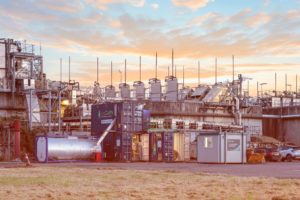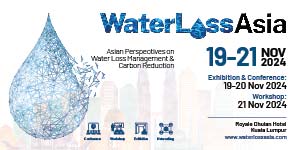IFAT Munich 2022: A Strong Restart for Climate Protection

IFAT Munich 2022: a strong restart for climate protection High level of international attendance. (Image source: Messe München GmbH)
“A huge exhibition, concentrated knowledge transfer, networking—IFAT Munich 2022 served as pure inspiration and drives the sustainable transformation of industries and climate-resilient communities,” says Stefan Rummel, Managing Director of Messe München. “Having attracted 2,984 exhibitors from 59 countries and around 119,000 visitors from 155 countries, the show has approached pre-coronavirus levels—reflecting the great potential of environmental technologies and confirming its position as the world's leading platform for water, sewage, waste and raw materials management.” Dr. Johannes F. Kirchhoff, Chairman of the IFAT Munich Advisory Board adds: “The high international attendance at the trade show during this challenging time was impressive. It's great to see IFAT making such a strong restart, as it is a very important, sustainable driver for circular economy and the environmental industry.”
From plastics to water: focus on closed cycles
The circular economy took up more space than ever at the trade show. At the opening, German Environment Minister Steffi Lemke emphasized: “A properly functioning circular economy saves primary resources, reduces dependencies and makes a significant contribution to protecting the climate and biodiversity. My policy aims to help strengthen the circular economy at all stages of its cycle and make environmental protection an appealing business model.”
A total of four special areas were specifically dedicated to the circular economy, for example for plastics and building materials. For water, as well, the focus was on sustainable use and closed cycles, for example in industrial production—and in cities, which must use smart water management to prepare for extreme drought as well as heavy rainfall. The trade fair showcased the enabling technologies, the conference program featured more than 300 experts sharing their knowledge, and there were plenty of live demonstrations and guided solution tours.
The key figures of the trade fair
IFAT Munich covered a total of 260,000 square meters, occupying all 18 halls and a large part of Messe München’s outdoor area. 2,984 exhibitors from 59 countries and regions (2018: 3,305/58) and around 119,000 visitors from 155 countries and regions (2018: 142,472/162) traveled to Munich. Half of the exhibitors and visitors came from abroad. In comparison with the previous event, especially the strong participation from China and Russia was missing. A Start-up Area gathered 49 start-ups from 16 nations. There were 15 international joint pavilions from Europe as well as Japan, Canada, South Korea and the U.S. High-ranking political representatives traveled to the event, including from Egypt, Belgium and Malaysia, as well as the environment ministers of Brazil and Singapore and many international delegations.
Valuable platform for the environmental industry
“IFAT has not lost its attractiveness for the circular economy branch and, in the future, will continue to uphold its importance as the world's leading trade fair for the sector,” explains Max Köttgen, Member of the Management Board at REMONDIS. “I am very impressed with the size of the show, the number of visitors and the unparalleled expert platform, and I am delighted that we could have a number of relevant discussions with customers and partners," says Anja Eimer, Head of Water & Waste Water at Siemens. The trade show is an “excellent platform to present our products and solutions to the public” (Georg Huber, Chairman of the Board, HUBER), it is the “most important international fair to reflect industry trends based on our sustainable product and service innovations” (Ottmar Steinebrunner, Managing Director Sales & Service Europe and Americas, Bucher Municipal), and as the “world's leading trade fair for the municipal sector it provides an ideal platform to experience our versatile industry solutions” (Dr. Ralf Forcher, Head of Mercedes-Benz Special Trucks).
Source: Messe München GmbH







